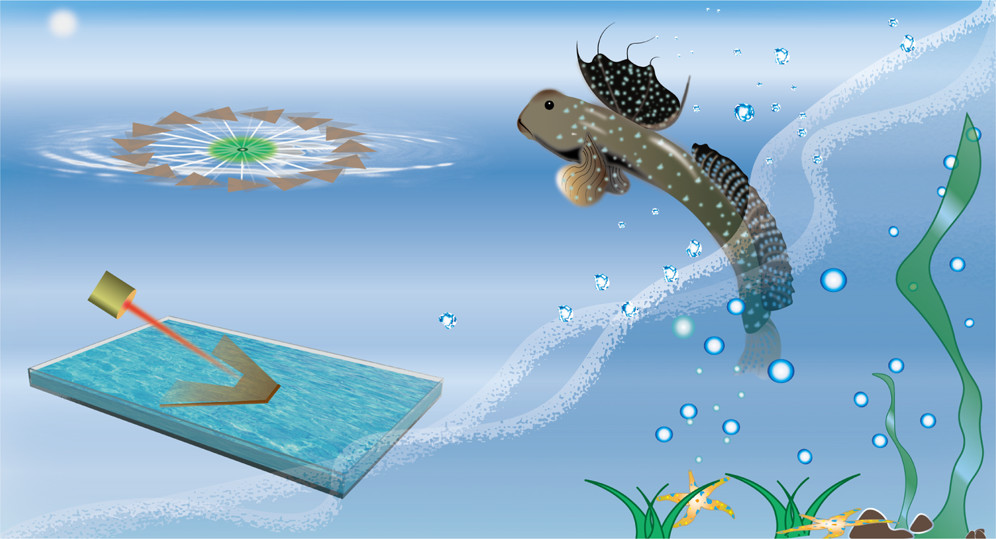Abstract
The systematicness, flexibility, and complexity of natural biological organisms are a constant stream of inspiration for researchers. Therefore, mimicking the natural intelligence system to develop microrobotics has attracted broad interests. However, developing a multifunctional device for various application scenarios has great challenges. Herein, we present a bionic actuator that is composed of a porous silicone elastomer and graphene oxide. The actuator exhibits a reversible and wellintegrated response to near-infrared (NIR) light due to the photothermal-induced contractile stress in the actuation film, which promotes generation of cyclical and rapid locomotion upon NIR light being switched on and off, such as bending in air and crawling in liquid. Furthermore, through rational device design and modulation of light, the mechanically versatile device can float and swim controllably following a predesigned route at the liquid/air interface. More interestingly, the actuator can jump from liquid medium to air with an extremely short response time (400 ms), a maximum speed of 2 m s-1, and a height of 14.3 cm under the stimulation of near-infrared light. The present work possesses great potential in the applications of bioinspired actuators in various fields, such as microrobots, sensors, and locomotion.
The systematicness, flexibility, and complexity of natural biological organisms are a constant stream of inspiration for researchers. Therefore, mimicking the natural intelligence system to develop microrobotics has attracted broad interests. However, developing a multifunctional device for various application scenarios has great challenges. Herein, we present a bionic actuator that is composed of a porous silicone elastomer and graphene oxide. The actuator exhibits a reversible and wellintegrated response to near-infrared (NIR) light due to the photothermal-induced contractile stress in the actuation film, which promotes generation of cyclical and rapid locomotion upon NIR light being switched on and off, such as bending in air and crawling in liquid. Furthermore, through rational device design and modulation of light, the mechanically versatile device can float and swim controllably following a predesigned route at the liquid/air interface. More interestingly, the actuator can jump from liquid medium to air with an extremely short response time (400 ms), a maximum speed of 2 m s-1, and a height of 14.3 cm under the stimulation of near-infrared light. The present work possesses great potential in the applications of bioinspired actuators in various fields, such as microrobots, sensors, and locomotion.

Keywords Plus:CARBON-NANOTUBEGRAPHENE OXIDEFABRICATIONACTUATORFILMSPOLYMERSSHEETS
Published in ACS APPLIED MATERIALS & INTERFACES,Volume14;10.1021/acsami.2c03852,MAY 4 2022


